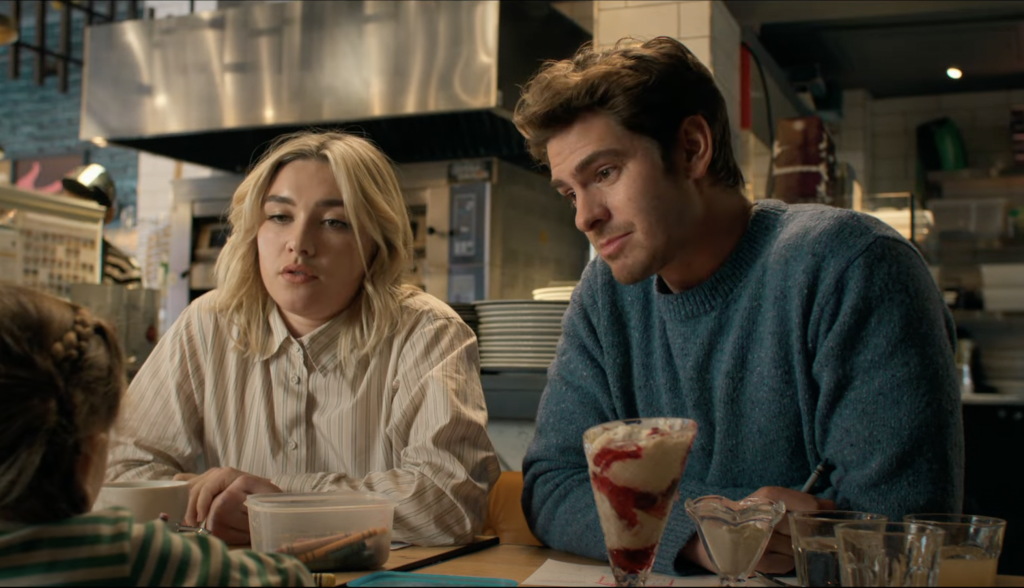“We Live in Time” is a beautifully heartbreaking story about love, life and the preciousness of relationships. It is a film that looks you in the eyes as it tugs on your heartstrings, elevated by the talent and chemistry of the lead actors.
Tobias (Andrew Garfield) is going through a divorce when he is hit by a car driven by Almut (Florence Pugh). The two meet and spark an immediate connection. The story takes us through their characters’ intertwined lives, embarking on a beautiful path of life challenged by the limits of time. Through this, they learn to cherish each moment of their unconventional love story.
The plot line is jumbled, with flashbacks and flash-forwards of the couple’s life. The film opens with a cancer diagnosis for Almut, who speaks to her partner, Tobias, about an impossible decision — six more months of livelihood versus a year of miserable chemotherapy treatment that is not guaranteed to work. From here, the film jumps around their partnership, unfolding into four timelines.
The chronological jumble will be a dealbreaker for those who like their weepers straightforward. The film doesn’t use title cards or any other markers other than Almut’s physical appearance, including the pregnant belly and the shaved head of cancer treatment. The jumps feel random and jarring at first, but upon reflection, they prove to be meaningful.
There is an emotional logic to them, the way one would remember key moments and memories of their life out of order as it’s coming to an end. One could argue that there were too many quick jumps that made the audience want to stay in one moment before speeding away, but it seems that is the point. The good moments pass us by, while the bad ones linger in our minds.
As for the acting, Garfield and Pugh effortlessly pulled off their roles. The two were able to become their characters, proving their lives different throughout the timeline of the film. [Bella note: Idk what “proving their lives different” means] While Pugh arguably does more of the heavy lifting in terms of storyline, Garfield’s performance should also be highlighted. His expressions of concern, anger and deep sadness prove his devotion to his craft. While the film is criminally short, Garfield and Pugh are both able to develop their characters with small, nuanced acting choices.
Not many films can weave two cancer diagnoses, a birth, a budding romance and death successfully into one film without feeling like it’s playing with the audience’s emotions, but this movie was made for those who won’t care. There’s a reason this dramatic subgenre is so popular and many moviegoers still love it. It’s an ideal world that captures us in its web for a short period of time.
Rating: 4.8/5



